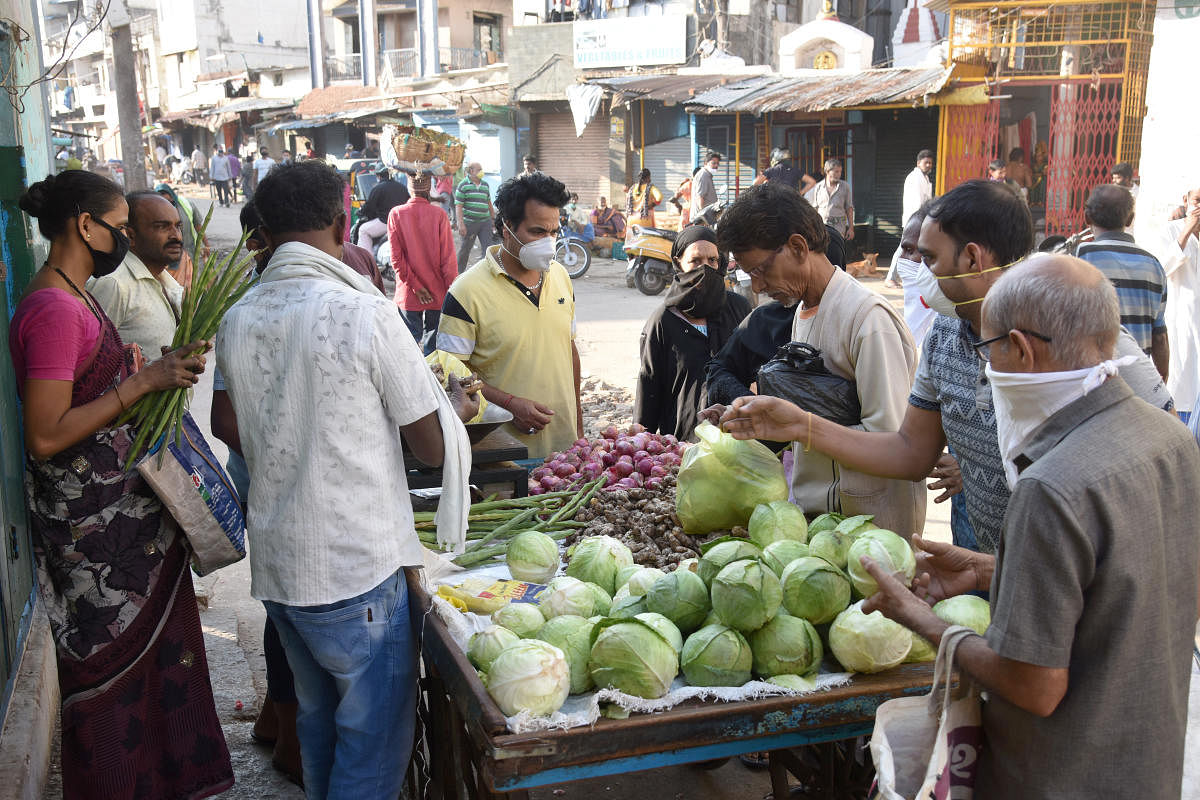
Eating patterns have changed since the beginning of lockdown. Many non-vegetarians are relishing more vegetarian dishes, and some are considering giving up on meat altogether.
“I have been consuming less meat since lockdown began,” says Ankita Tripathi, freelance writer based in Bengaluru. Her family in Delhi has also cut down on meat.
“Our food habits have changed over the past month,” she says.
Hygiene concerns account for people eating less meat.
“I was raised a vegetarian and consumed meat on occasion for the sake of convenience,” says Meenakshi Banerjee, a Humanities student. “Lack of hygiene may not bring on Covid-19 infection, but it might cause some other infection, leaving us vulnerable to Covid-19.”
Going vegetarian is a matter of convenience in some families. Fifteen-year-old Chiranthana P Gowda says, “We don’t know if the local butcher follows social distancing, and cleaning vegetables is easier than cleaning meat.”
Not easy to give up
Not everyone gives up meat that easily. Arun Prabhu, IT professional, needs to have at least one meat dish a day. He was quite worried when the lockdown began but soon switched to online deliveries.
“Though the options were limited, I was able to order chicken, sometimes even mutton, from online shops and satisfy my cravings. I find it safer to order online than go to the butcher shop,” he says.
Licious, a meat delivery platform, has seen a rise in orders since the lockdown began. Vivek Gupta, co-founder, tells Metrolife, “Before the lockdown, we used to see a 30 per cent rise in our sales every month. That number has grown since then.” He says getting the meat has been a challenge. “We take bulk orders from apartments across the city and deliver at one go. Till the third phase of the lockdown, we didn’t have all items, but now we’re almost back to being fully functional,” Gupta says.
Eggs in demand
Some see eggs as a substitute for meat, given the supply difficulties. Manjunath Marappa, director of Happy Hens, has been receiving double the orders from retail stores for eggs.
“We have seen a 100 per cent spike in demand. Where we delivered only 10 packs earlier, we now deliver 20. Apart from delivering free-range eggs to retail shops, we have seen an increase in individual subscriptions,” says Manjunath.
Professionals speak
In March, the Indian Council of Medical Research had to step in to quell rumours that non-vegetarian food could lead to a Covid-19 infection.
“As birds and animals are responsible for certain viral infections, people tend to be cautious. However, it is okay to consume meat, provided it is well-cleaned and properly cooked,” says nutritionist Apoorva KS. Dietician Sheela Krishnaswamy says the dip in meat consumption is caused largely because of its unavailability. “I believe that unless costs are a concern, people will go back to their previous food habits,” she says.
Vegan perspective
Suryatapa Chakraborty, student, has turned vegan in the course of the lockdown.
“I used to be a non-vegetarian but it did not suit me. I searched the Internet and came across a vegan website,” she says.
A doctor promoting veganism says a dairy-free diet is beneficial for mental health too. “Change is stressful to all animals, which in turn leads to adrenaline. In humans who eat meat, this can cause a number of mental health problems such as anxiety and depression,” says Dr Nandita Shah, founder of Sharan.